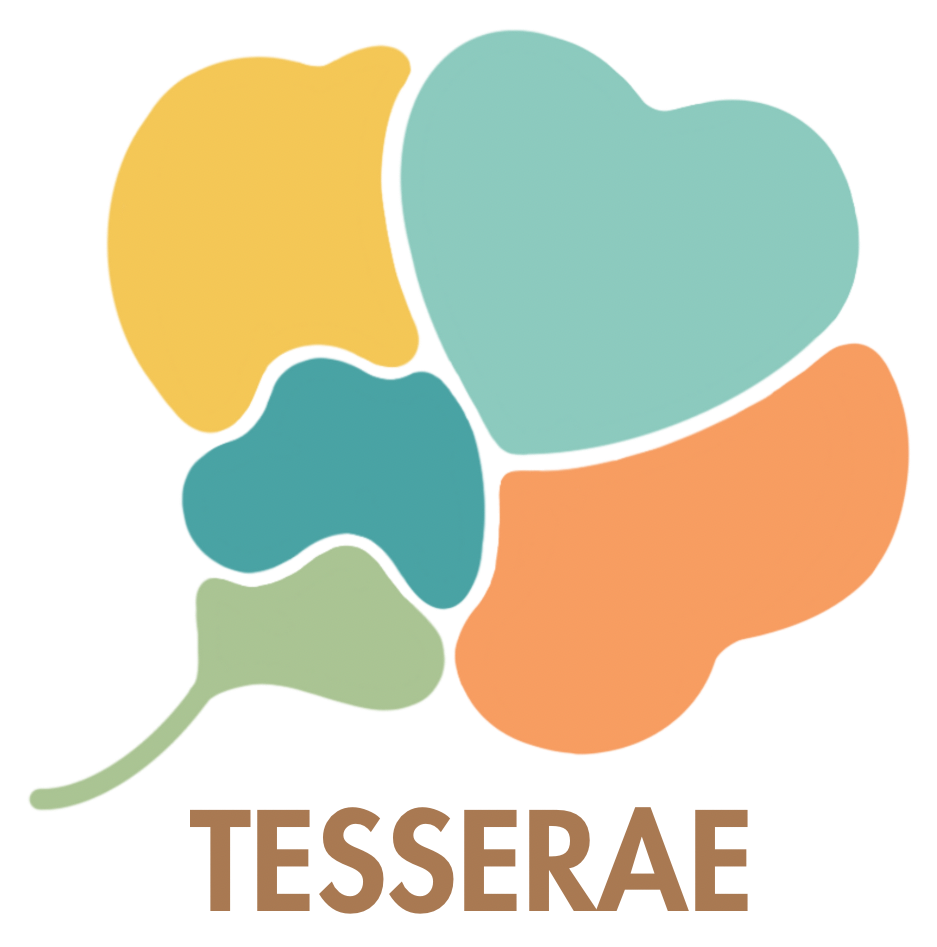Are you a parent in Singapore who has been feeling like something is a bit different about your child? These concerns can feel overwhelming, but understanding autism and knowing where to seek help in Singapore can make all the difference for your child’s future.
Autism or Autism Spectrum Disorder (ASD) affects approximately 1 in 150 children in Singapore, making it more common than many parents realise. The good news? Early intervention can dramatically improve outcomes for children on the autism spectrum. At Tesserae, we specialise in collaborative ABA therapy and are here to help you understand the next steps for your child.
Understanding Autism in Singapore: What to Look For

What is autism or autism spectrum disorder (ASD)?
Autism Spectrum Disorder (ASD) is a neurodevelopmental difference that affects how a person communicates, interacts with others, learns, understands and experiences the world around them. It is best understood not as “something wrong” with the child, but as differences in how their brain processes and responds to the world. Many people describe this as neurodiversity. These differences can lead to challenges in daily life, especially if supports are not in place.
Clinically, ASD is known as a spectrum as several older diagnoses such as Autistic Disorder, Asperger’s Disorder, and PDD NOS were merged under the same diagnosis. Instead of using separate labels, clinicians now describe how much support a person needs, and add specifiers like whether there is language or intellectual impairment. Hence, how ASD presents in each individual and the support they require can vary greatly.
Some children with autism are non-speaking and need considerable support with daily activities, whilst others attend mainstream schools and may not be diagnosed until adulthood.
The key areas where autism typically shows up include:
- Social communication and interaction
- Restricted and repetitive behaviours or interests
- Sensory processing differences
Children with autism might have trouble understanding social cues, prefer routines, show intense interests in specific topics, or be sensitive to sounds, lights, or textures.
What causes autism?
The exact cause of autism is still being researched, but experts believe it’s a mix of genetic and environmental factors. It’s not caused by parenting, vaccines, or anything you did wrong. It’s a natural part of a person’s brain development. Knowing this can help you focus on what’s important: giving your child the love and support they need to thrive.
Is autism a disability?
Yes, in Singapore, autism is recognised as a developmental disability under the Persons with Disabilities. However, many prefer to think of autism as a neurological difference (neurodivergent) rather than a disability.
This classification is actually helpful because it opens doors to:
- Early intervention funding through government schemes
- Special education support in schools
- Therapy services subsidised by the Ministry of Health
Calling it a disability isn’t about limiting a person; it’s about making sure they have the resources and help they need to reach their full potential.

Is my child showing signs of autism?
Early signs of autism can appear as early as 12-18 months, though some children develop typically until around age 2-3 before showing signs.
Here are key indicators to watch for:
- Social Communication:
- Reduced eye contact
- Not imitating actions or facial expressions
- Not responding to their name by 12 months / not responding to their name consistently
- Less use of nonverbal communicative behaviours (pointing, waving, showing)
- Delayed speech development, or lack of babbling
- Repeating words or phrases (echolalia)
- Not pointing to things to show you what they want
- Difficulty playing with peers
- Repetitive Behaviours and Restricted Interests:
- Doing repetitive movements like hand flapping or spinning (though not necessarily)
- Having very specific, focused interests (e.g., being obsessed with trains or car logos)
- Insisting on following the exact same routine every day
- Having unusual sensory reactions to sounds, sights, or textures
If these things sound familiar, it’s worth talking to a professional to get a clearer picture.
What are the common traits of high-functioning autism in Singapore?
High-functioning autism (now called Level 1 autism) can be harder to spot, especially in bright children who learn to mask their difficulties.
In Singapore’s academic environment, these children might:
- Have reasonably good verbal skills, and sometimes be strong academically
- Have difficulty in social settings, peer interaction, unstructured play (like recess)
- Have more subtle social communication challenges (reading cues, back-and-forth conversation)
- Have difficulty with group work or team sports
- Show intense interests in specific subjects
- Follow rules very literally
- Experience meltdowns when overwhelmed
Many individuals with high-functioning autism in Singapore aren’t diagnosed until they start struggling with the social demands of a school setting. Support for high-functioning autism is just as important as support for other forms of autism, because these children still face challenges that can make life difficult. It is never too late to provide support for your child.
Differences between autism, ADHD, and learning disabilities
It can be hard to tell the difference between autism, ADHD (Attention-Deficit Hyperactivity Disorder), and learning disabilities because their symptoms can sometimes overlap. It’s possible for a child to have more than one of these conditions, so it’s best to consult a professional who can give you an accurate diagnosis. Here is a simple table to illustrate the differences.
Condition | Key Features | Main Challenges |
Autism | Social communication differences, repetitive behaviours, sensory sensitivities | Social interaction, change in routine, sensory overload |
ADHD | Inattention, hyperactivity, impulsivity | Focus, sitting still, following through on tasks |
Learning Disabilities | Specific academic skill difficulties | Reading, writing, maths, or processing information |
Getting an Autism Test in Singapore: Screening Vs Diagnosis
When parents first have concerns about their child, it can feel overwhelming to know where to start. Do you go straight for a formal diagnosis? Or is there an earlier step?
The process usually begins with screening or an initial consultation before moving on to a formal diagnosis if needed. Understanding how these two steps differ, and how they work together, can help you make the right choice for your child.

Why Start with Screening or Consultation First?
Screening is a lower-stakes, faster way to get professional input without committing to a long diagnostic process. Parents often choose this first step due to:
- Time sensitivity – Waitlists for formal diagnosis in Singapore can be 2–6 months long. Early intervention is most effective when started quickly, so screening helps avoid delays.
- Clarity without commitment – A simple consultation provides a professional opinion and signposts whether further assessment is warranted, avoiding wasted time if behaviours were misinterpreted.
- Step-up when ready – If needed, families can move from screening into a full diagnosis later with our partners or other formal channels.
- Foundation for intervention – Screening is often necessary anyway to design an individualised intervention plan for your child, making it a practical and simple starting point.
At Tesserae, our Clinical Director Dr. Dominic Leong is trained in the Autism Diagnostic Observation Schedule, Second Edition (ADOS-2) assessment.
While only psychiatrists and psychologists can issue a formal autism diagnosis in Singapore, Dr. Leong is qualified to do so in other markets, and his expertise ensures that parents receive meaningful guidance at the screening stage.
Should you want to get referred for a formal diagnosis, we work with an ecosystem of partners who can help.
The advantages of a formal autism diagnosis in Singapore
An autism diagnosis goes deeper than a screening. It is a legally recognised assessment carried out by a psychiatrist with expertise in neurodevelopmental disorders. While it takes longer, a diagnosis opens doors to a wider range of support:
Government-funded support:
- Early Intervention Programme for Infants and Children (EIPIC)
- Subsidised therapy through polyclinics
- Special education placement
- Disability concession scheme benefits
School support:
- Special educational needs (SEN) support in mainstream schools
- Examination accommodations
- Allied educator support
However, you don’t need to wait for a diagnosis to start early intervention. Many private centres, including Tesserae Early Intervention Centre, can begin support whilst you’re waiting for assessment.
Who does diagnoses in Singapore for autism?
In Singapore, autism is diagnosed by a psychologist who has a special interest and expertise in neurodevelopmental disorders.
The process usually involves structured, comprehensive tests , often including tools like the ADOS-2 and the Autism Diagnostic Interview–Revised (ADI-R), along with developmental history taking and direct observation of your child’s communication, play, and behaviour. These assessments can take multiple sessions over several hours or days, ensuring an accurate, thorough understanding of your child’s strengths and support needs.
Some of the main places for a diagnosis are the Child Development Unit at the National University Hospital (NUH) or the Department of Child Development at KK Women’s and Children’s Hospital (KKH). Private clinics are also an option, and some of them may be faster.
Doctors will then classify autism into three levels based on how much support a person needs:
- Level 1: Requiring Support. People at this level have social communication difficulties and might struggle with social interactions. They can handle changes in routine but might find it hard. They are often able to speak in full sentences and may seem quite smart, but they struggle with conversations.
- Level 2: Requiring Substantial Support. These individuals have more noticeable difficulties with social communication, even with support. They might have a more limited vocabulary or have trouble with back-and-forth conversations. Their routines are very important, and changes can cause a lot of distress.
- Level 3: Requiring Very Substantial Support. This is the highest level of support needed. People at this level have severe deficits in both verbal and nonverbal communication. They might have very limited speech or not use it at all. Their routines are extremely important to them, and they might show repetitive behaviours that get in the way of daily life.
Knowing these levels can help you and the professionals you work with figure out the right kind of help for your child.
When and how to get an autism diagnosis for a child in Singapore?
The best time to seek a diagnosis is usually as early as possible, since research shows that early intervention has a lasting positive impact on a child’s development. But in reality, the timing of a formal diagnosis can also depend on a family’s priorities and the child’s needs.
Typically, many parents get a formal diagnosis before their child turns 6 years old if their child requires admission to a Special Education School (SPED).
Some parents may prefer to move quickly toward diagnosis, especially if:
- They want access to government-funded programmes or have school-based accommodations (e.g. longer time for examinations).
- Their insurance provider requires a formal diagnosis for coverage.
- They need clarity for long-term planning and support at school or home.
Others may prefer to start with screening or intervention without a diagnosis, particularly if:
- They are concerned about the stigma that may still be attached to a diagnostic label.
- Their child is very high-functioning, and parents feel a formal diagnosis may not change the type of support the child receives.
- They want to prioritise immediate strategies for behaviour and learning rather than going through a longer diagnostic process.
At the end of the day, there’s no one-size-fits-all answer. The timing of a formal diagnosis really depends on what is best for the child and family. Many parents find that starting with a screening or consultation gives them clarity without pressure, and allows them to step into a full diagnosis later if and when it feels right.
If you want to start on the government-subsidised diagnosis route, the first step is to visit a polyclinic. They can give you a referral to the CDU, who can refer you to a specialist for the diagnosis. The specialist will then do an in-depth assessment. The process might take a few sessions, and they might ask you to fill out questionnaires about your child’s development and behaviour. It’s a thorough process, and that’s a good thing, because it means the diagnosis will be accurate and helpful for planning your child’s future.
At Tesserae, we kickstart this journey with you by offering a 2-hour development screening with our Clinical Director.
This is not a formal diagnosis, but allows you to get a professional perspective on your concerns and specific recommendations tailored to your child.
Choosing the Right Therapy for Your Child with Autism in Singapore
Early intervention therapy options in Singapore vary widely, with different approaches suited to different children’s needs and family circumstances.
The therapy landscape for autism in Singapore offers various evidence-based interventions. Research consistently shows that early, intensive intervention leads to better outcomes, with some children making such progress that they no longer meet autism criteria.

Early intervention options for autism in Singapore
When it comes to early intervention for autism in Singapore, you have a few choices.
Applied Behaviour Analysis (ABA): ABA is a well-researched intervention for ASD, focusing on breaking down skills into small steps and using positive reinforcement. It’s particularly effective for building communication, social skills, promoting positive behaviour and regulating challenging behaviours.
Speech and Language Therapy: SLT focuses not just on speech sounds, but on the full range of communication skills: making requests, sharing ideas, understanding instructions, and participating in back-and-forth conversation. A speech therapist may also work on alternative and augmentative communication (AAC), such as picture exchange systems or communication devices, to give your child a reliable way to express themselves.
Occupational Therapy: Helps children develop daily living skills, fine motor skills. OT also helps children manage sensory sensitivities by gradually building tolerance to sounds, textures, and environments that they find overwhelming. Particularly helpful for children who struggle with eating, dressing, or experience meltdowns or avoid certain activities because of sensory overload.
Social Skills Training: Social skills are one of the most common areas of difficulty for children with autism, even those who are academically capable. Social skills training teaches children how to join a group activity, share toys, take turns, make friends, and understand social rules. These programmes are often delivered in small groups so children can practise in a safe, supportive setting.
Naturalistic Teaching
Naturalistic teaching builds on the principles of ABA but happens in everyday environments and play activities, making learning feel fun and meaningful. Instead of only teaching at a table, therapists follow the child’s interests and use naturally occurring situations to teach new skills, for example, encouraging a child to request a toy during play or practise turn-taking during a game. This approach helps children generalise skills to real life, improves motivation, and supports spontaneous communication. At Tesserae, naturalistic teaching is integrated into daily sessions so that children learn not just how to do a skill, but when and why to use it in real settings.
How to decide which therapy to start with
With so many options, picking one can be tough. The best way to decide is to think about what your child needs most. Is their main challenge with communication? Then speech therapy might be a great starting point. Do they struggle with routine or get upset over small things? ABA therapy might be a good fit.
Many families start with a comprehensive programme that includes ABA because it can address a wide range of skills.
At Tesserae, we believe that the best outcomes are achieved when different disciplines work together seamlessly.
While ABA provides a strong evidence-based foundation, our team blends their expertise in counseling and collaborates closely across other disciplines (such as occupational therapy, speech therapy, and psychological support) so that strategies are integrated rather than siloed.
This way, your child benefits from a holistic plan that is tailored to their unique learning style, developmental needs, and family context.
Questions to ask therapists & clinics before enrolling
Before you enrol your child in a therapy programme, it’s a good idea to ask some questions to make sure the centre is the right fit. You could ask about the therapist’s qualifications and experience, how they measure progress, what the parent’s role is in the therapy, and what a typical session looks like.
If you’re specifically looking for ABA therapy, check whether the programme is designed or supervised by a Board Certified Behaviour Analyst (BCBA). A BCBA is internationally recognised as the gold-standard credential in ABA, requiring graduate-level training, supervised clinical hours, and passing a rigorous exam. Having the therapy conducted or supervised by a BCBA (or even better, a BCBA-D) makes a big difference in the quality and effectiveness of your child’s support.
You can also ask about the staff-to-child ratio and how they handle any challenging behaviours. It’s also helpful to ask for a tour of the centre and meet the team. Asking these questions will help you feel more comfortable and confident with your choice.
Finding Autism Support & Early Intervention Programmes in Singapore
Singapore offers various government and private support services for families affected by autism, from therapy funding to community resources. Singapore’s autism support system combines government funding with private services to provide comprehensive care.
Understanding your options helps ensure your child receives appropriate support without unnecessary financial strain.

Autism Resource Centre (ARC) & therapy options
The Autism Resource Centre (Singapore), is a well-known charity that is Singapore’s leading autism advocacy and support organisation. They have a lot of resources, from early intervention to school and job support. Other key organisations include:
- Pathlight School: Specialised school for students with autism and Asperger’s syndrome
- St. Andrew’s Autism Centre: Provides education and therapy services
- AWWA: Offers early intervention and school-age programmes
While these are great resources, there are also many other private therapy centres, like ours, that focus on specific early intervention approaches such as ABA. The key is to find a centre that aligns with your family’s needs and values. Don’t be afraid to explore different options and see what feels right for you and your child.
What is EIPIC?
EIPIC stands for Early Intervention Programme for Infants and Children. It’s a government-funded programme that provides therapy and educational support for children with developmental needs, including autism, up to the age of six.
It is usually a group setting that helps children get ready for school. The government subsidises a lot of the cost, making it a popular choice for many families in Singapore.
EIPIC benefits:
- Heavily subsidised therapy
- Multidisciplinary team approach
- Available at various centres island-wide
- Includes speech therapy, occupational therapy, and physiotherapy
How to access EIPIC:
- Get a referral from a paediatrician or child psychiatrist
- Apply through your preferred EIPIC centre
- Undergo assessment to determine eligibility
- Begin intervention programme
EIPIC limitations:
- Waiting lists can be long (3-6 months)
- Limited ABA availability
- Less intensive than private options
While EIPIC is a great option, some parents choose private centres because they may offer a more individualised and intensive approach.
Financial aid and government schemes
Caring for a child with autism in Singapore can be expensive, but there is help available. The government offers several financial aid schemes and subsidies to help families. These include the EIPIC subsidy, as well as grants and support from organisations like SG Enable. Some families might also be able to claim a part of their insurance for therapy. It’s worth checking with the various organisations and your insurance provider to see what you qualify for.
Choosing the Right School: Mainstream vs. SPED
Educational placement decisions are crucial for children with autism, with options ranging from mainstream schools with support to specialised education programmes. Singapore offers flexible educational pathways for children with autism, allowing families to choose based on their child’s specific needs and abilities rather than a one-size-fits-all approach.

Mainstream vs. Special Education (SPED) schools for autism
When it comes to schooling, you have two main paths: a mainstream school or a Special Education (SPED) school.
Mainstream schools with Special Educational Needs (SEN) Support: Many children with autism, particularly those with good academic skills, can succeed in mainstream schools with appropriate support:
Advantages:
- Exposure to typically developing peers
- Access to full curriculum
- Better preparation for mainstream society
- More school choices
Challenges:
- Less specialised autism support
- Potential for sensory overload
- Social integration difficulties
- Limited understanding from teachers
SPED schools: Specialised schools designed specifically for children with disabilities offer intensive, tailored support:
Advantages:
- Smaller class sizes (6-8 students)
- Specially trained teachers
- Autism-specific teaching methods
- Sensory-friendly environments
Challenges:
- Limited exposure to typical peers
- Potentially lower academic expectations
- Fewer school options
- Possible stigma
The key is finding the least restrictive environment where your child can succeed academically, socially, and emotionally.
Resources & Next Steps for Parents
Navigating autism support in Singapore requires knowing where to turn for help, from diagnostic services to ongoing community support and long-term planning.
Taking the next steps after suspecting your child might have autism can feel daunting, but Singapore offers numerous resources to support your family’s journey.

Where to get tested and seek help
If you haven’t already, the next step is to get in touch with a paediatrician or a developmental psychologist. They can provide a formal diagnosis and help you create a plan for early intervention. You can reach out to hospitals like KKH or NUH, or you can consider a private centre like Tesserae. It’s important to find a team you trust and who can partner with you to give your child the best possible start.
Recommended autism support groups in Singapore
Caring for a child with autism can be a lot to handle, and having a support system is so important. There are many parent support groups in Singapore such as Autism Network Singapore (Facebook) where you can connect with other families who are going through similar experiences. These groups can be a great place to share stories, get advice, and just feel like you’re not alone. The Autism Association (Singapore) and Autism Resource Centre (Singapore) both have support services for parents.

Building a long-term care plan
Finally, it’s good to think about a long-term plan for your child’s care. This might include things like setting goals for therapy, planning for school, and considering what your child might want to do when they grow up. The journey with autism in Singapore is a lifelong one, but with the right support, your child can lead a fulfilling and meaningful life.
If you have more questions or would like to learn about how our ABA-led therapy can help your child, we encourage you to book a discovery call with us today.
Disclaimer: This article is for informational purposes only and should not replace professional medical advice. If you have concerns about your child’s development, please consult with a qualified healthcare professional for proper assessment and guidance.
